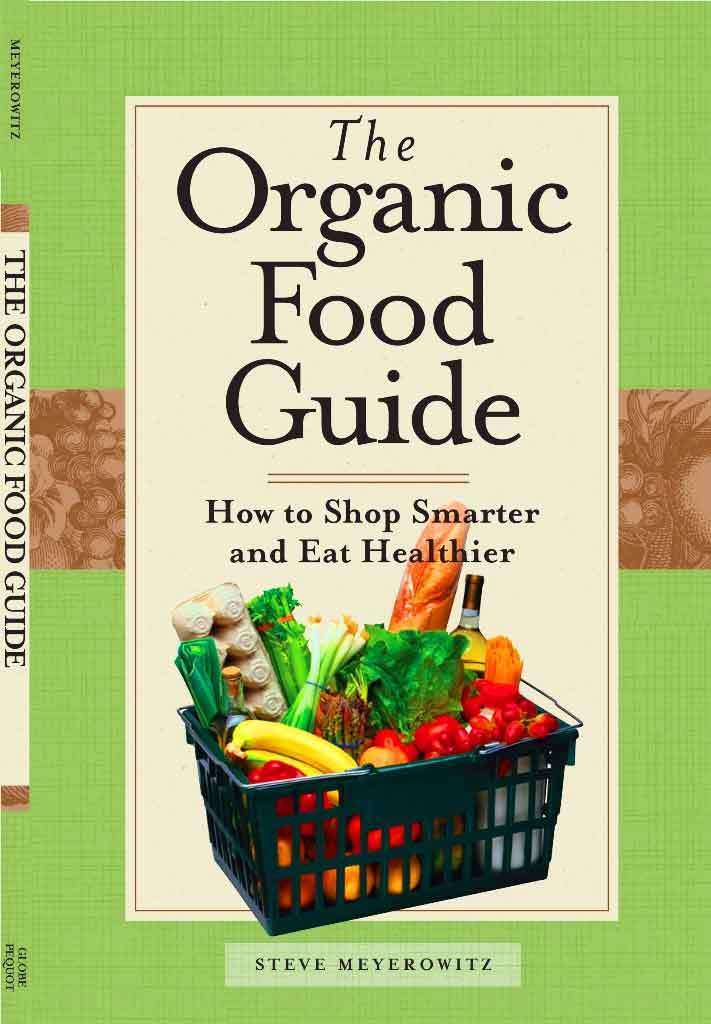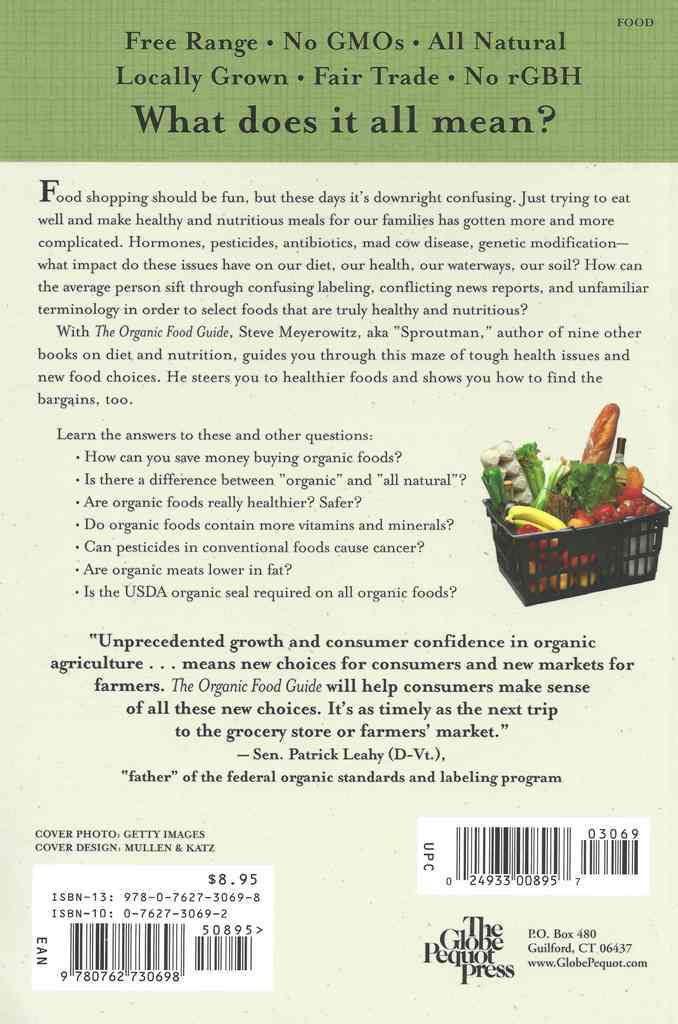

The Organic Food Guide: How to Shop Smarter and Eat Healthier
$7.98
Please select all options.
This book provides a thorough and non-technical introduction to world of organic foods. Some topics of special interest include product labeling, health and nutrition, environmental quality, and getting the best prices.
What are organic foods? Are they really healthier? Are organic foods safer? Do they taste better? Why do they cost more? Are they worth it? Can pesticides be washed off? How can I protect myself from pesticides and other additives? The Organic Food Guide makes you a better shopper and helps you navigate through the jungle of additives, claims, and label jargon.
Free Range? No GMOs? All Natural? Locally Grown? Fair Trade? No rGBH? What Does It All Mean? Find out what they all mean! Shopping should be fun, but these days it’s downright confusing! Hormones, pesticides, antibiotics, mad cow disease, genetic modification, what impact do these issues have on our diet, our health, our waterways, our soil? Now health crusader Steve Meyerowitz, aka “Sproutman,” and author of nine other books on diet and nutrition, guides you through this maze of tough health issues and new food choices. He’ll steer you to healthier foods and show you how to shop organic and save money at the same time.
- How can I save money buying organic foods?
- Is there a difference between organic and all natural?
- Are organic foods really healthier? Safer?
- Do they contain more vitamins & minerals?
- Can pesticides in conventional food cause cancer?
- Are organic meats lower in fat?
- Is the USDA organic seal required on all organic foods?
Tough new standards and USDA labeling are powering unprecedented growth and consumer confidence in organic agriculture, and that means new choices for consumers and new markets for farmers. The Organic Consumer's Guide will help consumers make sense of all these new choices. It's as timely as the next trip to the grocery store or farmers market. – Sen. Patrick Leahy (D-Vt.), the "father" of the federal organic standards and labeling program.
The Organic Food Guide Contains Everything You Need to Know to Shop Smarter and Eat Healthier. Since the U.S. Department of Agriculture put into place the long-awaited National Organic Program, American consumers have finally had a set of nationwide standards for organic foods. But new standards raise new questions. What is organic food? What's the relationship between organic food and food labeled with terms like all-natural, free-range, hormone-free, and locally grown? Are organic, made with organic, and 100% organic foods different? And most importantly, is organic food better for me and my family? This handy guide provides a thorough but non-technical introduction to organic food. Some topics of special interest include product labeling, health and nutrition, environmental quality, and pricing. Do Organic Foods Really Taste Better? Yes! Despite its small size and informal nature, our survey clearly demonstrated that out of the 175 tasters, 117 preferred organic to only 31 for non-organic. Twenty-four persons could not tell the difference. Are They Really More Nutritious?
-
In a review of 400 published papers comparing organic and non-organic foods, the organic crops were higher in essential minerals, phytonutrients (antioxidants, bioflavonoids), and vitamin C.
-
Tomatoes, beans, peppers, and beets grown on organic farms using natural soil regenerative techniques contained ten times more mineral content than the same foods grown by conventional means.
-
In an experiment at the Copenhagen Zoo, chimpanzees instinctively chose the organic bananas and left the conventional bananas alone.
-
In a study of thousands of cattle, sheep, and pigs by the Swedish University of Agricultural Sciences, the organically raised animals had fewer health problems, better growth, better reproduction, and lower fat content than animals fed conventional feed.
Organic Foods Are Our Best Health Insurance
-
The U.S. Food and Drug Administration, estimates that twenty pounds of pesticides are used per person every year in the U.S. At least 53 of these are classified as carcinogenic.
-
Breast cancer patients are five times more likely to show pesticide residues in breast tissue than non-cancer patients.
-
In the July, 2000 issue, the prestigious New England Journal of Medicine reported we are more likely to contract cancer from pesticides and environmental pollutants than from hereditary causes.
-
Seventy percent of all antibiotics made in the U.S. are used on livestock. Consumption of low level antibiotics through meat and poultry is reducing the effectiveness of penicillin and tetracycline to stop human infections.
-
The U.S. Geological Survey reports that more than 90 percent of water and fish samples from streams contain one or more pesticides.
Organic Agriculture Helps People, Plants, Animals, and Earth.
- Reduces Chemical Usage
- Conserves the Environment
- Protects Drinking Water Supplies
- Builds Soil Fertility
- Prevents Topsoil Erosion
- Promotes Species Diversity
- Protects Animal Habitats
- Contributes to Local Economies
ISBN 978-0-7627-3069-8. 96 pp. ppbk. 6" wide x 9" high. July 2004.
The Organic Food Guide: How to Shop Smarter and Eat Healthier
This is the most succinct, best organized, and easiest to use book on getting started with organics that I have ever seen. It’s like a field guide to help new people get started and it’s chock full of statistics and details for long time loyalists as well.
Within the past 8 months I have switched my diet and lifestyle to an organic one. Since then I have been bombarded with people asking me
why and what does it mean. I found this book in my research and think it is a very informative and practical guide to understanding why
organic foods are so important, both for our health and for our environment! I have bought a bunch of these books and have been sharing
them with friends and family. I recommend reading this book as a good starting point to truly understanding organic essentials!
This book outlines the differences in labels and treatment of foods in stores. For example, what is the difference between regular and
organic foods, besides price? Before reading this book I never really understood the difference between products and why I should be
buying organically grown foods. I found this to be very helpful in understanding if I am really eating healthy.

